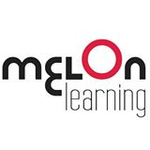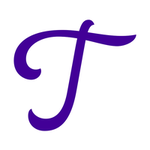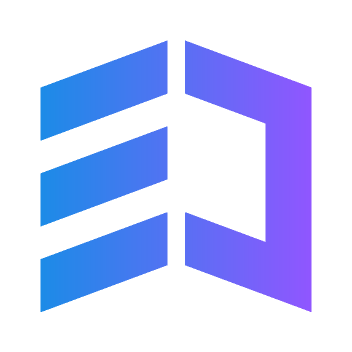Description

Melon LMS

Relias
Comprehensive Overview: Melon LMS vs Relias
To provide a detailed overview of Melon LMS, Relias, and SCL, we'll examine the primary functions, target markets, market share, user base, and key differentiating factors of these learning management systems.
Melon LMS
a) Primary Functions and Target Markets
- Primary Functions: Melon LMS offers functionalities such as course management, e-learning content delivery, tracking and reporting of learner progress, and customizable training paths. It often includes features like gamification, mobile learning, and integration with other HR systems.
- Target Markets: Melon LMS primarily targets corporate clients and educational institutions looking for centralized e-learning platforms. It caters to large enterprises as well as small and medium-sized businesses across various industries.
b) Market Share and User Base
- Market Share and User Base: While specific data on Melon LMS's market share may vary, it is generally considered a competitive player in the European LMS market. Its user base is typically composed of diverse corporate entities and educational institutions focused on scalable and flexible learning solutions.
c) Key Differentiating Factors
- Customizability and Flexibility: Melon LMS is recognized for its high level of customizability, allowing organizations to tailor the learning environment to their specific needs.
- Focus on Gamification: Offers enhanced engagement through gamification features, which is a standout feature for companies aiming to increase learner interaction.
Relias
a) Primary Functions and Target Markets
- Primary Functions: Relias specializes in compliance training, professional development, and performance management, with capabilities in analytics, assessments, and credentialing.
- Target Markets: Primarily targets the healthcare sector, including hospitals, senior care facilities, behavioral health organizations, and public safety institutions.
b) Market Share and User Base
- Market Share and User Base: Relias holds a significant market share within the healthcare sector due to its tailored solutions for compliance and professional development. It serves thousands of healthcare providers and has a notable presence in the United States.
c) Key Differentiating Factors
- Industry Focus: Deep specialization in healthcare and compliance training sets Relias apart from generic LMS providers.
- Regulatory Compliance: Strong emphasis on meeting industry regulatory requirements and tracking, which is essential for healthcare organizations.
SCL (usually referring to Schoology Learning, or similar Learning Management Systems)
a) Primary Functions and Target Markets
- Primary Functions: SCL systems like Schoology support K-12 education and higher education with course management, assignment creation, grading, collaboration tools, and parental engagement features.
- Target Markets: K-12 schools, districts, and higher educational institutions, with a focus on enhancing classroom learning and management.
b) Market Share and User Base
- Market Share and User Base: SCL products have a strong presence in North American educational institutions. Schoology, for example, is widely used in the K-12 sector, often integrated by entire school districts.
c) Key Differentiating Factors
- Educational Focus: Built primarily for educational settings, offering tools that facilitate teacher-student and parent-teacher interactions.
- Integration with SIS: Seamless integration with Student Information Systems (SIS) for managing students' academic records is a critical advantage.
Comparative Overview
- Target Market Specialization: Relias is distinguished by its focus on healthcare training, Melon LMS offers a more versatile platform for corporate training, and SCL systems like Schoology serve the educational sector.
- Customization and Usability: Melon LMS is praised for customizability; Relias excels in industry-specific compliance features, while SCL focuses on educational tools and integrations.
- Market Presence: Relias has a strong niche presence in healthcare, SCL is widely used in educational settings, and Melon LMS competes in the broader corporate and educational markets.
Overall, each LMS serves specific needs and industries, which dictates their features and approach to market. The choice between them would largely depend on the industry's needs, the specific functionalities required, and user experience preferences.
Contact Info

Year founded :
Not Available
Not Available
Not Available
Not Available
Not Available

Year founded :
2012
Not Available
Not Available
United States
Not Available
Feature Similarity Breakdown: Melon LMS, Relias
To provide a feature similarity breakdown for Melon LMS, Relias, and SCL, I'll discuss their core features, user interfaces, and any unique features that distinguish them from each other.
a) Common Core Features
-
Course Management:
- All three platforms provide tools for creating, organizing, and managing courses. This includes the ability to upload content in various formats, such as video, audio, and text documents.
-
Assessment and Testing:
- They offer assessment tools, such as quizzes, tests, and assignments, to measure learner progress.
-
Progress Tracking and Reporting:
- Each platform provides tracking and reporting features to monitor learner progress and outcomes, offering analytics and insights into course performance.
-
User Management:
- These systems include functionalities to manage users, such as enrolling students, assigning roles, and creating groups or cohorts.
-
Mobile Accessibility:
- All three platforms are accessible via mobile devices, ensuring learners can access content on the go.
-
Integration Capabilities:
- They can integrate with third-party applications, enhancing functionality with tools like Zoom for virtual classrooms or external data analytics services.
b) User Interface Comparison
-
Melon LMS:
- Melon LMS is known for its intuitive and straightforward user interface. The design focuses on ease of use, with a clean layout that is easy to navigate. The platform offers customizable themes, allowing organizations to tailor the look and feel to match their brand.
-
Relias:
- Relias has a user interface designed primarily for the healthcare sector, focusing on clarity and ease of accessibility. The interface includes a dashboard that provides quick access to courses and reports. It tends to favor functionality that suits fast-paced environments.
-
SCL (Smart Corporate Learning):
- SCL offers a modern and sleek interface that is user-friendly. It emphasizes user engagement through interactive elements and an intuitive dashboard that highlights key actions and notifications. The platform's visual design caters to corporate environments, providing clear and organized navigation.
c) Unique Features
-
Melon LMS:
- One unique feature of Melon LMS is its strong emphasis on customizable and flexible learning paths, which allow organizations to create tailored educational experiences for different learner groups.
-
Relias:
- Relias is distinct in its comprehensive content library, specifically tailored for healthcare, compliance, and long-term care industries. It offers a wealth of pre-built courses and compliance training materials that are difficult to find in generic LMS platforms.
-
SCL:
- SCL distinguishes itself with its advanced gamification features. It provides a robust system for incorporating game-like elements into learning, such as leaderboards and rewards, to motivate learners and increase engagement.
In summary, while Melon LMS, Relias, and SCL share several core features that underscore their capabilities as learning management systems, they differ in interface design and offer unique features tailored to specific industry needs or educational approaches. These distinctions can significantly influence user experience and the suitability of each platform for different organizational contexts.
Features

Comprehensive Course Management
Support and Resources
User-Friendly Interface
Performance Tracking
Engagement and Collaboration

User Engagement
Training Management
Performance Management
Integration and Support
Content Management
Best Fit Use Cases: Melon LMS, Relias
When considering learning management systems (LMS) like Melon LMS, Relias, and SCL, it's essential to evaluate the specific needs and contexts in which each excels. Here's a breakdown of the best fit use cases for each:
a) Melon LMS:
- Best Fit Business Types or Projects: Melon LMS is ideal for small to medium-sized enterprises (SMEs) that require a flexible and customizable LMS to deliver and manage corporate training programs. It is particularly suitable for companies looking for an intuitive user interface that can be tailored to their branding and specific training workflows.
- Use Cases: It is best used in scenarios where businesses need a scalable solution for e-learning, compliance training, onboarding, and employee development programs. Companies that place a premium on user-friendly experiences and straightforward integration with existing HR and IT systems will find Melon LMS advantageous.
- Industry Suitability: Melon LMS caters to a wide range of industries such as technology, finance, healthcare, and education. Its adaptability makes it suitable for any business looking to provide robust online training without the complexity of a larger enterprise-focused LMS.
b) Relias:
- Preferred Scenarios: Relias is particularly strong in healthcare settings, including hospitals, long-term care facilities, and behavioral health organizations. It is the preferred option for organizations that require rigorous compliance training and need to meet specific regulatory requirements in the healthcare sector.
- Core Strengths: Relias excels in delivering specialized content for healthcare professionals, offering a vast library of accredited courses that ensure staff are competent and compliant. Its analytics and reporting capabilities are designed to meet the needs of healthcare administrators and compliance officers.
- Industry Suitability: Beyond healthcare, Relias is also suitable for human services, senior care, and public safety organizations. Its focus on content that meets legal and professional standards makes it an essential tool in heavily regulated environments.
c) SCL (Simple, Cloud-Based Learning):
- Users Should Consider When: Users should opt for SCL when they need a straightforward, highly accessible solution that leverages cloud technology for educational institutions and training centers that require consistent uptime and easy access from various locations.
- Use Cases: SCL is excellent for academic institutions or organizations transitioning to online education formats, allowing students and educators to access learning materials and courses remotely. It is also beneficial for companies with distributed teams needing consistent training across multiple geographies.
- Industry Suitability: SCL caters well to educational sectors, including K-12 schools and higher education. It is also relevant for corporate training environments that prioritize accessibility and require a simplified LMS solution that minimizes IT overhead.
d) Catering to Different Verticals and Company Sizes:
- Melon LMS: Melon LMS is versatile and can be adapted to various verticals with more emphasis on organizations preferring customizable solutions. It suits SMEs best due to its balance of functionality and simplicity.
- Relias: Predominantly serves healthcare and related industries. It is tailored to meet the needs of extensive healthcare systems and smaller care providers, focusing on stringent compliance and professional development.
- SCL: Best for educational institutions and geographically diverse organizations. It provides a basic yet effective platform for managing education and training, appealing to both small institutions and larger educational networks due to its cloud-based nature.
Each of these LMS platforms has distinct strengths and serves different market needs, making the choice largely dependent on industry demands, company size, and specific project requirements.
Pricing

Pricing Not Available

Pricing Not Available
Metrics History
Metrics History
Comparing undefined across companies
Conclusion & Final Verdict: Melon LMS vs Relias
When evaluating Melon LMS, Relias, and SCL, it's crucial to consider various factors such as features, ease of use, support, customization, scalability, and pricing. Each product has its distinct strengths and weaknesses, catering to different types of users and organizational needs. Here's a comprehensive analysis of each:
Final Verdict and Best Overall Value
Best Overall Value:
- Relias generally offers the best overall value due to its robust feature set tailored for specific industries, comprehensive analytics, and versatile training management capabilities. Its focus on sectors like healthcare and senior care provides specialized content and compliance tools, making it ideal for organizations in these fields.
Pros and Cons of Each Product
Melon LMS:
- Pros:
- User-friendly interface with intuitive navigation.
- Flexible customization options allow users to tailor the platform to their specific needs.
- Good integration capabilities with existing systems and third-party applications.
- Cons:
- Limited advanced features compared to more specialized solutions.
- May not offer the depth of industry-specific content that others like Relias provide.
Relias:
- Pros:
- Extensive library of industry-specific courses and compliance training, particularly strong in healthcare.
- Advanced analytics and reporting tools help track learning progress and outcomes effectively.
- Strong customer support and training resources.
- Cons:
- Can be more expensive compared to more general LMS solutions.
- May be too specialized for industries outside its primary focus areas.
SCL:
- Pros:
- Cost-effective solution offering essential LMS functionalities.
- Suitable for smaller organizations or those new to using an LMS.
- Simple setup and deployment process.
- Cons:
- Limited scalability for larger organizations or those with more complex needs.
- Fewer advanced features and customization options compared to competitors.
Recommendations for Users
-
Choosing Relias:
- Best suited for organizations in healthcare, mental health, or senior care industries. Those requiring rigorous compliance training and industry insights will benefit the most.
- Consider the long-term return on investment if your organization values specialized courses and comprehensive learning analytics.
-
Choosing Melon LMS:
- Ideal for businesses seeking a balance between functionality and customization without needing heavy industry-specific content.
- Small to medium-sized enterprises looking for a straightforward, adaptable LMS that integrates well with other software will find it appealing.
-
Choosing SCL:
- Suitable for small organizations or those needing a basic, budget-friendly LMS solution. It's perfect for newcomers to digital learning management.
- Consider this option if your focus is on straightforward e-learning delivery rather than in-depth analytics or vertical specialization.
Ultimately, the decision should align with the organization's specific needs, budget, and the industries they operate within. Each option presents unique advantages, and stakeholders should weigh these against their key priorities and constraints before making an informed choice.
Add to compare
Add similar companies



